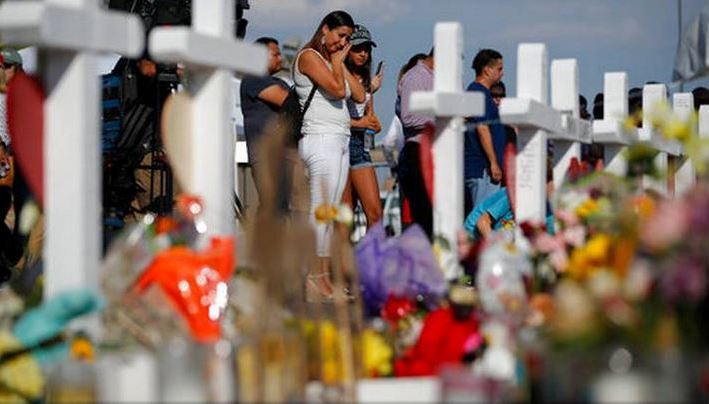
With 19 mass shootings in the U.S. in 2019 alone, the debate surrounding gun control is becoming less of a dialogue and more of an all-out war.
Pressure is mounting on President Trump to take action in the wake of shootings in Odessa, Dayton and El Paso last month.
According to Politico, Trump has plans to enact the death penalty for mass shooters, to release teenagers’ records for background checking once they reach 18 years old, and to require the FBI to alert authorities when a gun buyer fails to pass their background check.
Politico also points out, however, that the National Instant Criminal Background Check System is woefully incomplete because many critical mental health and drug abuse records are never sent in.
Clearly, universal background checks – the goal of most Democratic presidential candidates – won’t be able to successfully weed out potential shooters if their records never reach the database.
Mental health plays a critical role in America’s mass shooting epidemic. Ultimately, universal background checks could be a great way to decrease criminals’ ability to access firearms. But laws cannot always prevent evil people from doing evil things.
Take Nikolas Cruz, the 19-year-old who attacked students at Marjory Stoneman Douglas High School in Parkland, Florida, in February 2018. NPR reported that Cruz’s mother called police to their house over a dozen times since he was 10 years old. A family friend was aware that Cruz had threatened his mother and brother with a gun before. And, the FBI was alerted to Cruz’s behavior twice in the months leading up to the shooting: once in September 2017, and once in January 2018.
It’s short-sighted to blame guns in a case rife with so much bureaucratic incompetence.
However, some Democratic candidates seem to think that more bureaucracy is the key to solving gun violence.
Fox News reported that Beto O’Rourke advocated for a mandatory gun buyback program at the New Hampshire Democratic Party Convention on September 7. The assumption that fewer guns equals less violence, however, is just that – an assumption.
The Daily Wire cited a study from the Center for Disease Control that found a 56 percent increase in gun ownership and a 50 percent decline in gun violence between 1993 and 2003. The CDC also found that defensive gun uses numbered 500,000 to over 3 million in 2013, while gun homicides numbered 11,208 in the same year.
It’s clear that law-abiding citizens are using their legally acquired firearms to defend themselves, and their families far more than criminals are using guns to attack other people, but that’s not what attracts publicity.
Although it might sound easier and safer to get rid of guns, the truth is that you can’t put a Band-Aid on a bullet hole.
Forcing law-abiding citizens to sell their guns to the government isn’t just unconstitutional – it’s pointless. The real issues, the issues no one wants to talk about, are complicated, deep-rooted, and definitely not politically correct.
We need a coherent stance on mental health.
An article in the Wall Street Journal cites a report by the U.S. Secret Service, released in July, that analyzed 27 attacks and found that 67 percent of the suspects “displayed symptoms of mental illness or emotional disturbance”.
With the widespread destigmatization of mental illness that has taken place in recent years, however, the warning signs are not taken as seriously as they should be. Dr. Torrey, founder of the Treatment Advocacy Center and author of the WSJ article, made a disturbing point.
“There are now some one million people with serious mental illness living among the general population who, 60 years ago, would have been treated in state mental hospitals.”
No one supports wrongful institutionalization, but we may have gone too far in the other direction. In fact, Dr. Torrey states that 40-50 percent of the one million aren’t receiving any treatment.
Circling back to the Democrats’ and Trump’s plan for beefed-up background checks, it’s clear that they can be effective only if mental health issues are reported and taken seriously.
Between gun buybacks and universal background checks, the latter is the more reasonable option. But it is important to remind ourselves, amid the calls for gun control, that complete security is impossible.
We will never be able to account for every gun, much less every troubled high school student. And in a world full of uncertainty, I sleep better knowing that my dad’s rifle is ready to be used in an emergency.
Ashley Kaitz is a sophomore studying philosophy and religion.

